Pharmacist
400+ Pharmacist Interview Questions and Answers
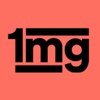
Asked in Tata 1mg

Q. 1. in which temperature we can store insulin inj sol 2.what are the parts of prescription. 3. how many types of inventry 4. what is LASA, FIFO examples of LASA. 5. which drugs are come under schedule x 6. What...
read moreAnswers to various questions related to pharmacy and medical field.
Insulin inj sol should be stored at a temperature between 2-8 degrees Celsius.
Parts of a prescription include patient information, prescriber information, medication details, and instructions.
There are different types of inventory, such as perpetual inventory, periodic inventory, and just-in-time inventory.
LASA stands for Look-Alike Sound-Alike drugs. Examples include hydroxyzine and hydralazine. FIFO stands f...read more

Asked in Apollo Pharmacy

Q. What are the different salts of antibiotic medicines?
Antibiotics medicine salt refers to the active ingredient in antibiotics that fights bacterial infections.
Antibiotics medicine salt is the active ingredient in antibiotics that fights bacterial infections.
Examples of antibiotics medicine salt include penicillin, amoxicillin, and ciprofloxacin.
Antibiotics medicine salt works by targeting specific components of bacterial cells, such as their cell walls or protein synthesis machinery.
It is important to use antibiotics medicine s...read more
Pharmacist Interview Questions and Answers for Freshers

Asked in Apollo Hospitals

Q. Type of diabetes and five molecules of diabetes medicine
There are two types of diabetes: Type 1 and Type 2. Five molecules of diabetes medicine are Metformin, Insulin, Glipizide, Pioglitazone, and Acarbose.
Type 1 diabetes is an autoimmune disease where the body attacks the pancreas and stops it from producing insulin.
Type 2 diabetes is a metabolic disorder where the body becomes resistant to insulin or doesn't produce enough insulin.
Metformin is a commonly prescribed medication for Type 2 diabetes that helps lower blood sugar leve...read more

Asked in MedPlus

Q. What is cns drugs and ans drugs
CNS drugs are medications that affect the central nervous system, while ANS drugs affect the autonomic nervous system.
CNS drugs include antidepressants, antipsychotics, anxiolytics, and stimulants.
ANS drugs include beta blockers, alpha blockers, and cholinergic drugs.
CNS drugs can have a wide range of effects on the brain and behavior, while ANS drugs primarily affect bodily functions like heart rate and blood pressure.
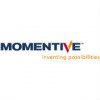
Asked in Momentive Performance Materials

Q. What is an emulsion?
An emulsion is a mixture of two liquids that would not normally mix, where one liquid is dispersed in the other.
Emulsions are chemically colloids.
The dispersed liquid is called the dispersed phase.
The continuous liquid is called the continuous phase.
Examples of emulsions include oil in water and water in oil.
Emulsions are commonly used in pharmaceuticals, cosmetics, and food products.

Asked in Max Healthcare

Q. What is the full form of the Latin terms OD, BD, and TDS?
The full form of Latin term od BD, OD & TDS are Once a day, Twice a day, and Three times a day respectively.
OD - Once a day
BD - Twice a day
TDS - Three times a day
Pharmacist Jobs


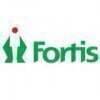

Asked in Tata 1mg

Q. Tell me about Basic knowledge of computer & billing What is e-priscription. What is scheduled drug H1 & Nx drugs. What is antibiotics and anti-inflammatory drugs.
Basic knowledge of computer & billing includes e-prescription, scheduled drugs H1 & Nx, antibiotics, and anti-inflammatory drugs.
E-prescription is the electronic transmission of prescription information from prescriber to pharmacy.
Scheduled drugs H1 & Nx are drugs that are regulated by the government due to their potential for abuse or addiction.
Antibiotics are drugs used to treat bacterial infections.
Anti-inflammatory drugs are used to reduce inflammation and pain.
Knowledge ...read more

Asked in Wellness Forever Medicare

Q. Which diseases or physical disorders are most common in INDIA
The most common diseases in India include cardiovascular diseases, respiratory diseases, and diabetes.
Cardiovascular diseases are the leading cause of death in India.
Respiratory diseases such as asthma and chronic obstructive pulmonary disease (COPD) are also prevalent.
Diabetes is a major health concern in India, with an estimated 77 million people affected.
Other common diseases include tuberculosis, malaria, and dengue fever.
Share interview questions and help millions of jobseekers 🌟


Asked in ESIC HOSPITAL

Q. Classified section of pharamcy 1.Gastrointestinal and hepatobilliary system Antacid. Antirefluxagents. And antiulerants, antispasmodic, laxtaive, purgative, digestive 2.cardivascular and hematopotiete system Ca...
read moreThe classified section of pharmacy includes drugs for various systems such as gastrointestinal, cardiovascular, respiratory, and central nervous system.
Gastrointestinal and hepatobiliary system drugs include antacids, antireflux agents, antiulcerants, antispasmodics, laxatives, purgatives, and digestive aids.
Cardiovascular and hematopoietic system drugs include cardiac drugs, beta blockers, calcium antagonists, antianginal drugs, antihypertensives, and diuretics.
Respiratory s...read more
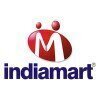
Asked in Indiamart Intermesh

Q. What are cross-selling and upselling?
Cross selling is offering related products to customers while upselling is offering higher-end products or upgrades.
Cross selling involves suggesting complementary products to the customer's purchase, such as offering batteries with a flashlight.
Upselling involves suggesting a higher-end version of the product the customer is interested in, such as offering a more expensive brand of pain reliever.
Both techniques aim to increase sales and customer satisfaction by providing add...read more

Asked in Apollo Pharmacy

Q. What is the normal oxygen saturation range for adults?
The adult normal oxygen volume is typically between 95-100% saturation.
The normal oxygen volume in adults is measured by oxygen saturation levels in the blood.
A healthy adult typically has an oxygen saturation level between 95-100%.
Factors such as altitude, smoking, and lung disease can affect oxygen saturation levels.
Low oxygen saturation levels can lead to symptoms such as shortness of breath, confusion, and fatigue.
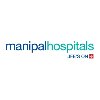
Asked in Manipal Hospitals

Q. What drugs are used for antihypertensive treatment?
Antihypertensive drugs are used to treat high blood pressure and include ACE inhibitors, beta blockers, diuretics, and calcium channel blockers.
ACE inhibitors: Lisinopril, Enalapril
Beta blockers: Atenolol, Metoprolol
Diuretics: Hydrochlorothiazide, Furosemide
Calcium channel blockers: Amlodipine, Diltiazem

Asked in Reliance Retail

Q. What is pharmacokinetics? What is pharmacodynamics? What are give medicine customer without prescription?
Pharmacokinetics is the study of how drugs are absorbed, distributed, metabolized, and excreted by the body. Pharmacodynamics is the study of how drugs interact with the body to produce a therapeutic effect.
Pharmacokinetics involves the ADME process: absorption, distribution, metabolism, and excretion
Factors that affect pharmacokinetics include age, gender, genetics, and disease states
Pharmacodynamics involves the study of drug-receptor interactions and how they produce a the...read more

Asked in Apollo Pharmacy

Q. What are the side effects of Brufen?
Brufen medicine side effects include stomach pain, nausea, and dizziness.
Common side effects include stomach pain, nausea, and dizziness
Less common side effects include headache, rash, and blurred vision
Rare but serious side effects include liver damage and allergic reactions
It is important to follow the recommended dosage and talk to a doctor if experiencing any side effects

Asked in Sun Pharmaceutical Industries

Q. What is the composition of these pills?
Pills are composed of active ingredients and excipients that aid in drug delivery and stability.
Active ingredients: These are the therapeutic components, e.g., ibuprofen in pain relief pills.
Excipients: Inactive substances that help in drug formulation, e.g., lactose or starch.
Binders: Help hold the pill together, e.g., gelatin or cellulose.
Coatings: Protect the pill and control release, e.g., enteric coating for stomach protection.
Fillers: Add bulk to the pill, e.g., microcr...read more

Asked in Medkart Pharmacy

Q. Give me a few names of Blood pressure medicine or Diabetes medicine or cholesterol medicine with content
Blood pressure medicine, diabetes medicine, and cholesterol medicine with content.
Blood pressure medicine: Lisinopril, Amlodipine, Metoprolol
Diabetes medicine: Metformin, Insulin, Glipizide
Cholesterol medicine: Atorvastatin, Simvastatin, Rosuvastatin

Asked in Wellness Forever Medicare

Q. What is a substitute for this medicine?
The substitute for this medicine is Drug B.
The substitute medicine should have similar therapeutic effects.
Consider the patient's medical history and any allergies when recommending a substitute.
Consult the formulary or drug reference for alternative options.
Inform the patient about the substitute medicine and any potential differences in dosage or administration.
Monitor the patient closely for any adverse reactions or lack of efficacy with the substitute medicine.

Asked in Apollo Hospitals

Q. Tell me the names of any five antibiotic tablets.
Here are five common antibiotic tablets used in medical practice.
Amoxicillin
Ciprofloxacin
Doxycycline
Azithromycin
Clarithromycin

Asked in Wellness Forever Medicare

Q. What are the most commonly used over-the-counter (OTC) medicines in India?
The most used OTC medicines in India include painkillers, antacids, cough and cold medicines, and vitamins.
Painkillers like paracetamol and ibuprofen are widely used for headaches, fever, and body pain.
Antacids like Eno and Gelusil are popular for treating acidity and heartburn.
Cough and cold medicines like Vicks and Benadryl are commonly used for cold and flu symptoms.
Vitamins like Vitamin C and B-complex are also popular OTC medicines.
Other commonly used OTC medicines inclu...read more

Asked in Wellness Forever Medicare

Q. Normal value of blood pressure and Glucose level in body
Normal blood pressure is 120/80 mmHg and normal glucose level is 70-99 mg/dL.
Normal blood pressure is systolic pressure of 120 mmHg and diastolic pressure of 80 mmHg
Normal glucose level is between 70-99 mg/dL when fasting
Blood pressure and glucose levels can vary based on age, gender, and other health conditions

Asked in Manipal Hospitals

Q. What drugs are used to treat cholesterol?
Drugs used for cholesterol include statins, fibrates, bile acid sequestrants, and PCSK9 inhibitors.
Statins are the most commonly prescribed drugs for cholesterol management.
Examples of statins include atorvastatin (Lipitor) and simvastatin (Zocor).
Fibrates like fenofibrate (Tricor) and gemfibrozil (Lopid) can also be used to lower cholesterol levels.
Bile acid sequestrants such as cholestyramine (Questran) and colesevelam (Welchol) help reduce cholesterol absorption.
PCSK9 inhi...read more

Asked in Wellness Forever Medicare

Q. Name any 10 medicine manufacturing industries.
Here are 10 medicine manufacturing industries
Pfizer - produces vaccines, oncology, and rare disease medicines
Novartis - produces pharmaceuticals, generics, and biosimilars
Roche - produces pharmaceuticals and diagnostics
Merck & Co. - produces vaccines, oncology, and animal health products
Sanofi - produces pharmaceuticals and vaccines
GlaxoSmithKline - produces pharmaceuticals and vaccines
Johnson & Johnson - produces pharmaceuticals, medical devices, and consumer health products...read more

Asked in MedPlus

Q. Drug used for ? What purpose ,drug knowledge
Drugs are substances used for medical purposes to treat, cure, or prevent diseases or conditions.
Drugs are used to alleviate symptoms and improve the quality of life for patients.
They can be used to treat various diseases and conditions such as infections, pain, hypertension, diabetes, and mental disorders.
Some drugs are used for preventive purposes, like vaccines to prevent infectious diseases.
Drug knowledge is essential for pharmacists to ensure safe and effective use of me...read more

Asked in Medanta the Medicity

Q. What are the types of prescriptions?
There are three types of prescriptions: written, verbal, and electronic.
Written prescriptions are handwritten by the prescriber and given to the patient.
Verbal prescriptions are given orally by the prescriber to the pharmacist.
Electronic prescriptions are transmitted electronically from the prescriber to the pharmacy.
Examples: A written prescription for antibiotics, a verbal prescription for pain medication, an electronic prescription for allergy medication.

Asked in Apollo Pharmacy

Q. What was the Ciccotolic Bp
I'm sorry, but I am not aware of any substance or term called Ciccotolic Bp in the field of pharmacy.

Asked in Hetero

Q. What is chromatography?
Chromatography is a technique used to separate and analyze mixtures of substances based on their different properties.
Chromatography involves a stationary phase and a mobile phase.
The stationary phase can be a solid or a liquid that is fixed in place.
The mobile phase is a liquid or gas that carries the mixture through the stationary phase.
Different components of the mixture interact differently with the stationary phase, leading to separation.
Common types of chromatography in...read more

Asked in Apollo Pharmacy

Q. how many human blood pressure
There are two types of human blood pressure: systolic and diastolic.
Human blood pressure consists of two measurements: systolic and diastolic.
Systolic pressure represents the force exerted on artery walls when the heart beats.
Diastolic pressure represents the force exerted on artery walls when the heart is at rest.
Normal blood pressure is typically around 120/80 mmHg.
High blood pressure (hypertension) is a reading above 130/80 mmHg.
Low blood pressure (hypotension) is a readin...read more

Asked in Ramkrishna Care Hospital

Q. What is Antibiotics drugs and give examples and Moa of any antibiotics drug
Antibiotics are drugs used to treat bacterial infections by inhibiting the growth or killing bacteria.
Antibiotics are a type of antimicrobial drug.
They work by either killing bacteria or inhibiting their growth.
Examples of antibiotics include penicillin, amoxicillin, and ciprofloxacin.
The mode of action (MOA) of antibiotics varies depending on the specific drug.
For example, penicillin works by interfering with the formation of bacterial cell walls.
Amoxicillin inhibits the syn...read more

Asked in Apollo Hospitals

Q. What is the classification of antibiotics, and can you provide examples for each category?
Antibiotics are classified into several categories based on their mechanism of action and spectrum of activity.
Classification of antibiotics includes beta-lactams, macrolides, tetracyclines, aminoglycosides, fluoroquinolones, and sulfonamides.
Examples of beta-lactams include penicillin and cephalosporins.
Macrolides include erythromycin and azithromycin.
Tetracyclines include doxycycline and tetracycline.
Aminoglycosides include gentamicin and amikacin.
Fluoroquinolones include c...read more

Asked in Apollo Pharmacy

Q. What was the chemical name of cardimom nd catechu
Cardamom's chemical name is Elettaria cardamomum and catechu's chemical name is Acacia catechu.
Cardamom is a spice commonly used in Indian cuisine and is known for its aromatic properties.
Catechu is a natural extract from the acacia tree and is used in traditional medicine for its astringent properties.
Both cardamom and catechu have been studied for their potential health benefits, including anti-inflammatory and antioxidant effects.
Interview Questions of Similar Designations
Interview Experiences of Popular Companies

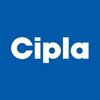






Reviews
Interviews
Salaries
Users
















